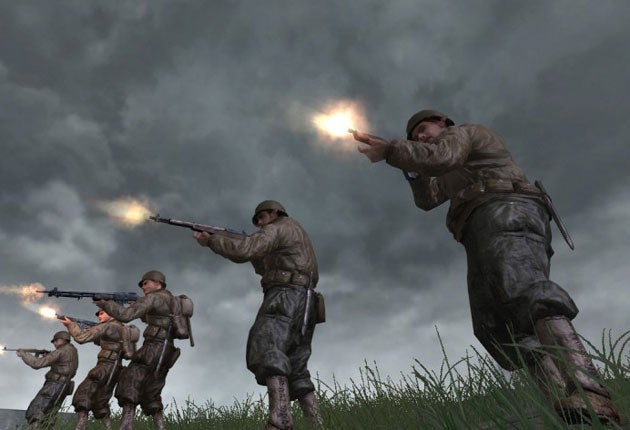Forget carrots, video games boost night vision
Targeting virtual objects on screen helps train eyes to work in low-light, study finds

Your support helps us to tell the story
From reproductive rights to climate change to Big Tech, The Independent is on the ground when the story is developing. Whether it's investigating the financials of Elon Musk's pro-Trump PAC or producing our latest documentary, 'The A Word', which shines a light on the American women fighting for reproductive rights, we know how important it is to parse out the facts from the messaging.
At such a critical moment in US history, we need reporters on the ground. Your donation allows us to keep sending journalists to speak to both sides of the story.
The Independent is trusted by Americans across the entire political spectrum. And unlike many other quality news outlets, we choose not to lock Americans out of our reporting and analysis with paywalls. We believe quality journalism should be available to everyone, paid for by those who can afford it.
Your support makes all the difference.Computer and video games that involve guns and shooting may not do much for a child's education but they can improve eyesight, according to a study showing that a person's night-time vision gets better after playing electronic action games.
Scientists found that games involving aiming and shooting at virtual objects on a computer screen can significantly increase people's ability to see objects in twilight conditions, when colours fade into different shades of grey.
Until now the only recognised way of improving a person's ability to detect small changes in shades of grey – visual "contrast" – was to improve the optics of the eye with contact lenses, spectacles or surgery.
But researchers have found that training on a video game can be just as effective, if not more so.
"Unfortunately, contrast sensitivity is one of the aspects of vision that is most easily compromised," said Daphne Bavelier, professor of brain and cognitive sciences at the University of Rochester in New York, who led the study published in the journal Nature Neuroscience.
"This problem affects thousands of people worldwide, including those with professional activities requiring excellent eyesight, and ageing populations, along with individuals who are clinically evaluated for vision problems such as amblyopia," Professor Bavelier said. "Normally, improving contrast sensitivity means getting glasses or eye surgery, somehow changing the optics of the eye. But we have found that action video games train the brain to process the existing visual information much more efficiently. The improvements last for months after game play has stopped."
The scientists tested the contrast sensitivity of a group of people who regularly played action video games, such as Unreal Tournament and Call of Duty, where the player has to shoot at virtual targets. They found the group's ability to detect different shades of grey was 58 per cent better on average than people who had not played the games.
Those who were not regular game players were then put through a training regime involving hours of console gaming. When they had completed the course, their contrast sensitivity had improved by 43 per cent on average.
"People who played action video games have better vision in the sort of conditions where there is not much contrast," said Professor Bavelier.
"It can make all the difference when driving at dusk, or in fog, in being able, for instance, to see a dog crossing the road in twilight.
"There are practical benefits for people who rely on their eyesight for their work, such as the military or commercial airline pilots.
"It shows that if you need to improve your vision, you can train your brain to get better at using the visual information you get," she said.
Join our commenting forum
Join thought-provoking conversations, follow other Independent readers and see their replies
Comments